Former USS Cole Commander pushes retaliatory jargon on circumstantial evidence.
Video / 02:50
Good morning and welcome to Fox News First. Here's what you need to know today...
Iranian vessel removed unexploded mine from stricken oil tanker in Gulf of Oman, US officials say
An Iranian vessel removed an unexploded mine that had been attached to a Japanese-owned oil tanker that suffered serious damage after an explosion in the Gulf of Oman early Thursday, U.S. officials told Fox News, as the U.S. Navy released video purportedly showing the incident. The imagery came from the USS Bainbridge, a guided-missile destroyer that rescued 21 sailors from the stricken tanker.
At least one other mine attached to the tanker's hull detonated, causing the blast. It happened near the strategic Strait of Hormuz, a key route for oil shipments in the region. A U.S. official told Fox News an Iranian gunboat approached the Kokuka Courageous later in the day and removed the unexploded triangular-shaped limpet mine, the same type of mine used to damage four other tankers in the Gulf of Oman last month.
Associated Press
Updated 4:28 a.m. today

Snip:
The U.S. Navy sent a destroyer, the USS Bainbridge, to assist, said Cmdr. Joshua Frey, a 5th Fleet spokesman. He described the ships as being hit in a "reported attack," without elaborating.
Thursday's attack resembled that of an attack in May targeting four oil tankers off the nearby Emirati port of Fujairah. U.S. officials similarly accused Iran of targeting the ships with limpet mines, which are magnetic and attach to the hulls of a ship. The mines disable, but don't sink, a vessel.
U.S. Secretary of State Mike Pompeo told journalists on Thursday that the U.S. assessment of Iran's involvement was based in part on intelligence, as well as the expertise needed for the operation. It was also based on recent incidents in the region, which the U.S. also blamed on Iran, including the use of limpet mines in the Fujairah attack, he said. He also tied Iran to a drone attack by Yemen's Iranian-backed Houthi rebels on a crucial Saudi oil pipeline around the same time.
"Taken as a whole, these unprovoked attacks present a clear threat to international peace and security, a blatant assault on the freedom of navigation and an unacceptable campaign of escalating tension by Iran," Pompeo said. He didn't elaborate and took no questions.
Iran denied being involved in the attacks last month and its foreign minister questioned the timing of Thursday's incidents, given that Japanese Prime Minister Shinzo Abe was meeting Supreme Leader Ayatollah Ali Khamenei in Tehran.
Meanwhile:
Video / 02:50
Good morning and welcome to Fox News First. Here's what you need to know today...
Iranian vessel removed unexploded mine from stricken oil tanker in Gulf of Oman, US officials say
An Iranian vessel removed an unexploded mine that had been attached to a Japanese-owned oil tanker that suffered serious damage after an explosion in the Gulf of Oman early Thursday, U.S. officials told Fox News, as the U.S. Navy released video purportedly showing the incident. The imagery came from the USS Bainbridge, a guided-missile destroyer that rescued 21 sailors from the stricken tanker.
At least one other mine attached to the tanker's hull detonated, causing the blast. It happened near the strategic Strait of Hormuz, a key route for oil shipments in the region. A U.S. official told Fox News an Iranian gunboat approached the Kokuka Courageous later in the day and removed the unexploded triangular-shaped limpet mine, the same type of mine used to damage four other tankers in the Gulf of Oman last month.
Associated Press
Updated 4:28 a.m. today

Snip:
The U.S. Navy sent a destroyer, the USS Bainbridge, to assist, said Cmdr. Joshua Frey, a 5th Fleet spokesman. He described the ships as being hit in a "reported attack," without elaborating.
Thursday's attack resembled that of an attack in May targeting four oil tankers off the nearby Emirati port of Fujairah. U.S. officials similarly accused Iran of targeting the ships with limpet mines, which are magnetic and attach to the hulls of a ship. The mines disable, but don't sink, a vessel.
U.S. Secretary of State Mike Pompeo told journalists on Thursday that the U.S. assessment of Iran's involvement was based in part on intelligence, as well as the expertise needed for the operation. It was also based on recent incidents in the region, which the U.S. also blamed on Iran, including the use of limpet mines in the Fujairah attack, he said. He also tied Iran to a drone attack by Yemen's Iranian-backed Houthi rebels on a crucial Saudi oil pipeline around the same time.
"Taken as a whole, these unprovoked attacks present a clear threat to international peace and security, a blatant assault on the freedom of navigation and an unacceptable campaign of escalating tension by Iran," Pompeo said. He didn't elaborate and took no questions.
Iran denied being involved in the attacks last month and its foreign minister questioned the timing of Thursday's incidents, given that Japanese Prime Minister Shinzo Abe was meeting Supreme Leader Ayatollah Ali Khamenei in Tehran.
Meanwhile:


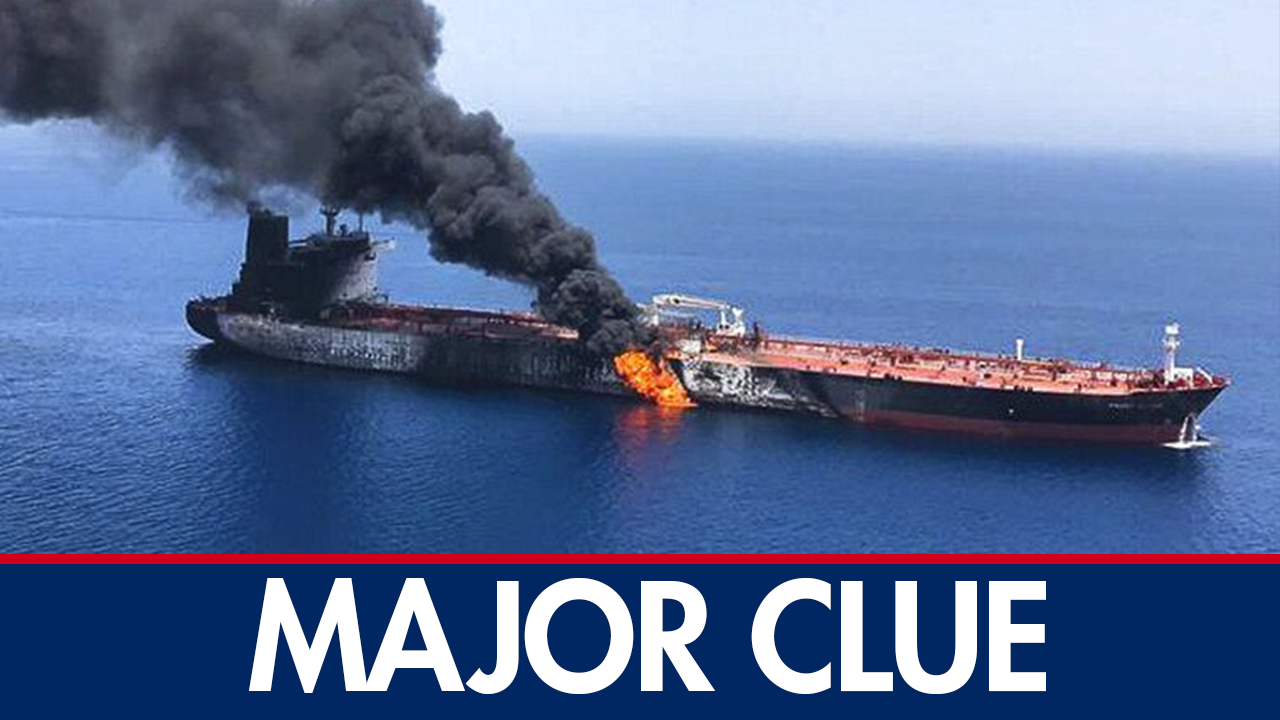
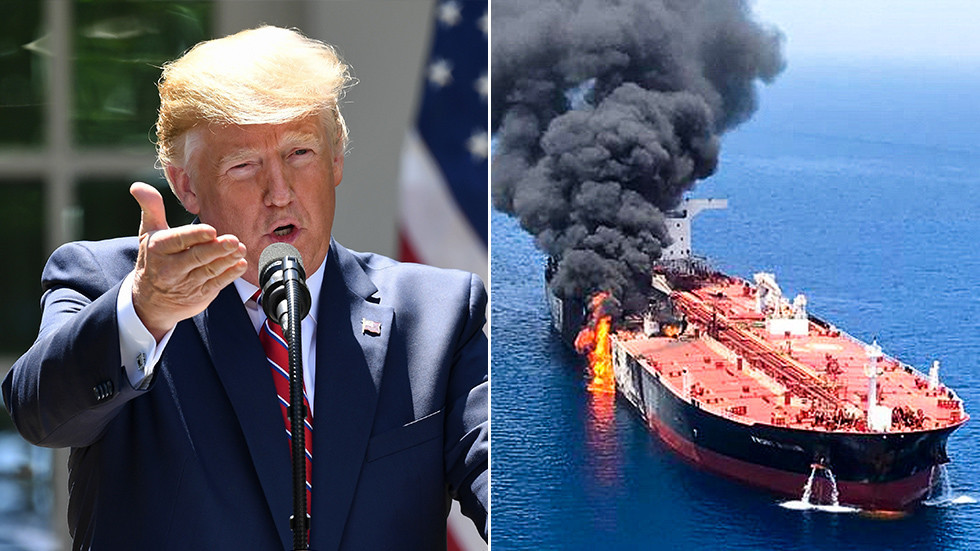
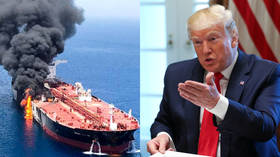

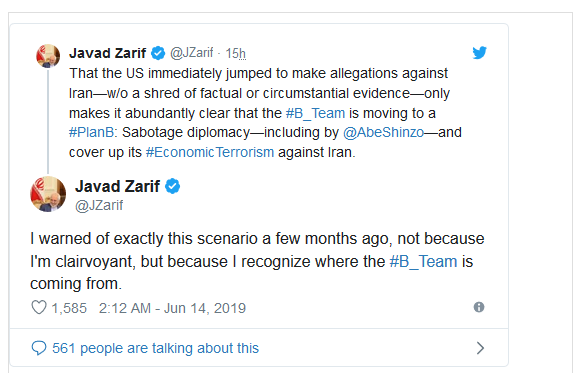

 Sen. Rand Paul has led the fight to ban US weapons sales to Saudi Arabia and other Gulf allies. Image source: Getty
Sen. Rand Paul has led the fight to ban US weapons sales to Saudi Arabia and other Gulf allies. Image source: Getty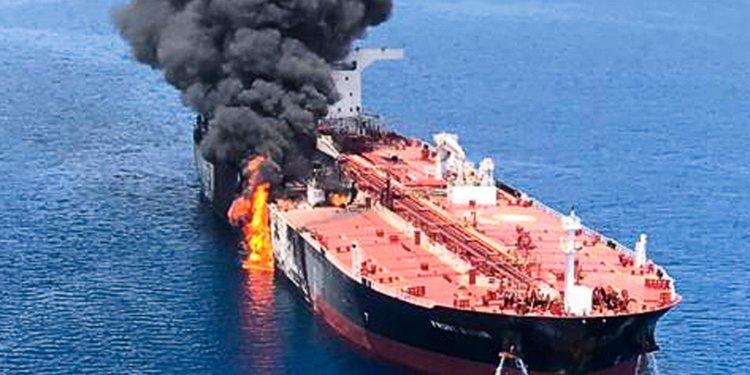 The Front Altair oil tanker on fire in the Gulf of Oman on June 13. AP Photo/ISNA
The Front Altair oil tanker on fire in the Gulf of Oman on June 13. AP Photo/ISNA